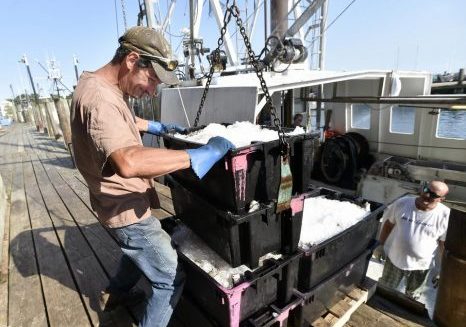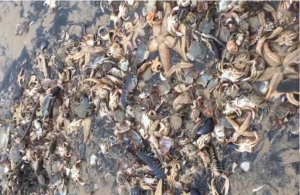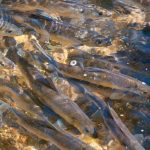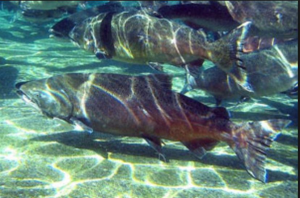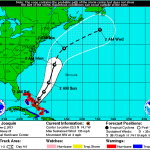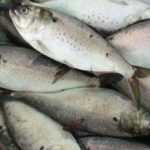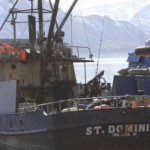Tag Archives: Atlantic States Marine Fisheries Commission
Conecticut lobstermen fighting for survival
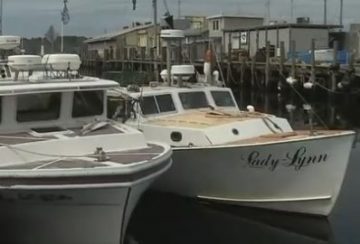 Connecticut’s Congressional Delegation wants to make sure that Connecticut Lobster Fishermen get their two cents in before they change any fishing plans for Southern New England. Lobster fishermen, fighting for survival, are being asked to speak up before federal regulators make a new lobster management plan for Southern New England. U.S. Sen. Chris Murphy and the Connecticut Congressional Delegation want the local lobster industry to survive long-term. But, lobstermen said new regulations could put them out of business at a time they see lobster catches growing. “Our records indicate it went up for the last three years not a lot, but a little bit,” Ted Whipple, who is a lobster buyer, said. Whipple said despite what government regulators claim, lobster fishing is improving. click here to read the story 08:49
Connecticut’s Congressional Delegation wants to make sure that Connecticut Lobster Fishermen get their two cents in before they change any fishing plans for Southern New England. Lobster fishermen, fighting for survival, are being asked to speak up before federal regulators make a new lobster management plan for Southern New England. U.S. Sen. Chris Murphy and the Connecticut Congressional Delegation want the local lobster industry to survive long-term. But, lobstermen said new regulations could put them out of business at a time they see lobster catches growing. “Our records indicate it went up for the last three years not a lot, but a little bit,” Ted Whipple, who is a lobster buyer, said. Whipple said despite what government regulators claim, lobster fishing is improving. click here to read the story 08:49
New Jersey continues to fight summer flounder cuts
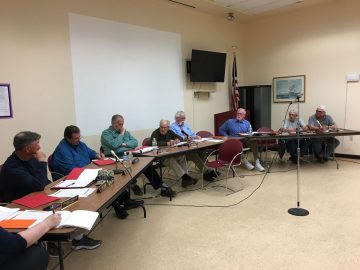 New Jersey’s fight against approved summer flounder measures hangs in the balance, and a meeting next month could prove critical for flounder fishermen. The state’s Marine Fisheries Council met Thursday evening at the Galloway Township branch of the Atlantic County Library in part to discuss its strategy in opposing a federal regulatory commission’s decision to cut this year’s summer flounder catch by 30 percent. “I’m getting questions every day,” said Dick Herb, the council’s chairman. “We just don’t know what’s going to happen there.” There’s a lot of things going on behind the scenes,” he added. Earlier this year, the state council voted to go out of compliance with the federal measures, which could trigger a pivotal decision by new Commerce Secretary Wilbur Ross following a federal regulatory meeting in May, Herb said. click here to read the story 09:54
New Jersey’s fight against approved summer flounder measures hangs in the balance, and a meeting next month could prove critical for flounder fishermen. The state’s Marine Fisheries Council met Thursday evening at the Galloway Township branch of the Atlantic County Library in part to discuss its strategy in opposing a federal regulatory commission’s decision to cut this year’s summer flounder catch by 30 percent. “I’m getting questions every day,” said Dick Herb, the council’s chairman. “We just don’t know what’s going to happen there.” There’s a lot of things going on behind the scenes,” he added. Earlier this year, the state council voted to go out of compliance with the federal measures, which could trigger a pivotal decision by new Commerce Secretary Wilbur Ross following a federal regulatory meeting in May, Herb said. click here to read the story 09:54
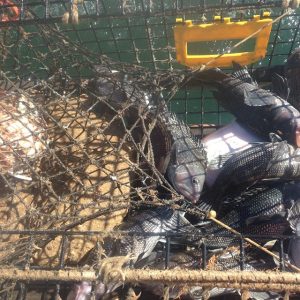
Connecticut Congressional Members Urge Lobster Regulators To Consider Impact of New Rules on Lobstermen
Connecticut’s remaining lobstermen should be heard before regional fishing regulators decide on a new plan to try and restore Long Island Sound’s lobster population, members of Connecticut congressional delegation urged Wednesday. Five members of the delegation signed a letter to the Atlantic States Marine Fisheries Commission asking that they get more feedback from Connecticut lobster operations before approving a final lobster management plan. Long Island Sound’s lobster population crashed in 1988-89. Marine scientists believe that climate change,,, Some Connecticut lobstermen argued that the dramatic population decline coincided with the widespread use of a particular pesticide used by Connecticut and New York to combat mosquitoes carrying the West Nile virus. click to read the story here 17:43
NJ asks feds to drop limits on summer flounder
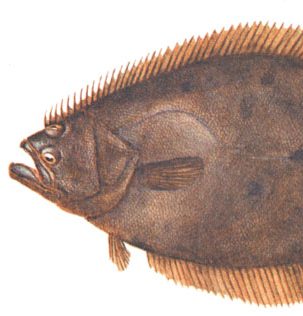 With their rows of sharp buck teeth, their downturned mouths, and both eyes on one side of their curiously flat bodies, summer flounder might seem beautiful only to one another. But this delicately flavored flatfish is the pinup girl, the heart’s desire, of thousands of New Jersey’s recreational fishermen — and has long been the source of many millions of dollars in tourism revenue each summer. For that reason the state has petitioned a federal commission to reverse its new restrictions on catching summer flounder in state waters in 2017. click to continue reading the story 07:06
With their rows of sharp buck teeth, their downturned mouths, and both eyes on one side of their curiously flat bodies, summer flounder might seem beautiful only to one another. But this delicately flavored flatfish is the pinup girl, the heart’s desire, of thousands of New Jersey’s recreational fishermen — and has long been the source of many millions of dollars in tourism revenue each summer. For that reason the state has petitioned a federal commission to reverse its new restrictions on catching summer flounder in state waters in 2017. click to continue reading the story 07:06
Trying to make a living
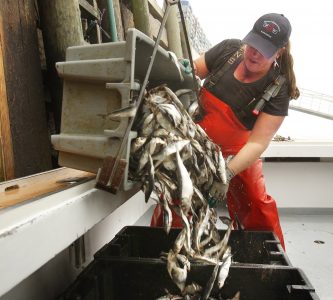 As soon as Old Man Winter indicates he’s loosening his grip on the Maine coast and spring is finally in the air, lobstermen will begin to rig their traps in preparation for the upcoming fishing season. One of their prime concerns this year, as in any year, will be questions about bait supplies and costs. Like other businessmen, how much money lobstermen take home at the end of the day, and what their annual profits will be, depends upon their costs and the price per pound their lobsters bring at the dock. In addition to any boat payments they may have, and for some fishermen with newer boats, these are high, they’ll be eyeing current fuel and bait costs.,, continue reading the op-ed here 10:32
As soon as Old Man Winter indicates he’s loosening his grip on the Maine coast and spring is finally in the air, lobstermen will begin to rig their traps in preparation for the upcoming fishing season. One of their prime concerns this year, as in any year, will be questions about bait supplies and costs. Like other businessmen, how much money lobstermen take home at the end of the day, and what their annual profits will be, depends upon their costs and the price per pound their lobsters bring at the dock. In addition to any boat payments they may have, and for some fishermen with newer boats, these are high, they’ll be eyeing current fuel and bait costs.,, continue reading the op-ed here 10:32
Plan to reopen Maine shrimp fishery in the works
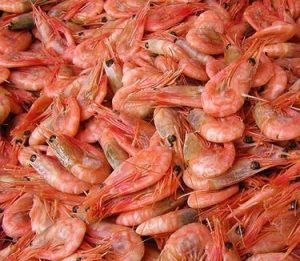 The Atlantic States Marine Fisheries Commission is seeking comment on its plan to reopen the northern shrimp fishery, which has been closed for three years. The Arlington, Va.-based regulatory agency’s plan includes options such as changing the way the quota system is managed. The agency noted that earlier proposals had considered establishing a limited entry program. The current proposal eliminates that option and focuses instead on “total allowable catch allocation programs, gear requirements, and other measures to improve management of the northern shrimp fishery and resource.” continue reading the story click here 21:14
The Atlantic States Marine Fisheries Commission is seeking comment on its plan to reopen the northern shrimp fishery, which has been closed for three years. The Arlington, Va.-based regulatory agency’s plan includes options such as changing the way the quota system is managed. The agency noted that earlier proposals had considered establishing a limited entry program. The current proposal eliminates that option and focuses instead on “total allowable catch allocation programs, gear requirements, and other measures to improve management of the northern shrimp fishery and resource.” continue reading the story click here 21:14
FOR IMMEDIATE RELEASE: NEW JERSEY FILES FORMAL APPEAL OF SUMMER FLOUNDER QUOTA REDUCTIONS
 New Jersey representatives to the Atlantic States Marine Fisheries Commission have filed an appeal requesting the commission reconsider its vote significantly reducing the state’s recreational-fishing quota for summer flounder this year, Department of Environmental Protection Commissioner Bob Martin announced today (March 28, 2017). “We are appealing the ASFMC decision because of the numerous process, data, policy and regulatory issues that will significantly impact New Jersey’s fishing industry,” Commissioner Martin said. “The ASFMC decision will actually result in anglers in New Jersey having to throw more dead fish back into the water than they can keep to eat, and the fish they can keep overwhelmingly will be reproductive females. This is not sound fishery management.” Read the press release here 08:02
New Jersey representatives to the Atlantic States Marine Fisheries Commission have filed an appeal requesting the commission reconsider its vote significantly reducing the state’s recreational-fishing quota for summer flounder this year, Department of Environmental Protection Commissioner Bob Martin announced today (March 28, 2017). “We are appealing the ASFMC decision because of the numerous process, data, policy and regulatory issues that will significantly impact New Jersey’s fishing industry,” Commissioner Martin said. “The ASFMC decision will actually result in anglers in New Jersey having to throw more dead fish back into the water than they can keep to eat, and the fish they can keep overwhelmingly will be reproductive females. This is not sound fishery management.” Read the press release here 08:02
Proposed regulations irk lobstermen
B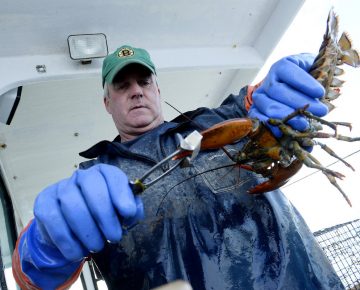 ay State lobstermen fear that a new proposal — meant to save lobsters in warming southern New England waters — could hurt business by barring them from harvesting in prime summer months and putting tighter restrictions on the size of their catch. The Atlantic States Marine Fisheries Commission will present a plan in New Bedford tonight on ways to maintain or increase the number of lobsters in waters from southern Massachusetts to Delaware. “Over the last 15 years we’ve seen a decline in lobster abundance, and we think that’s by and large a response to warming ocean temperatures,” said Dan McKiernan, deputy director of the Massachusetts Division of Marine Fisheries. “That’s the challenge that we have — it’s trying to preserve lobster but doing it in a way that the industry can survive,” he added. Yet Massachusetts lobstermen argue that their pots are full and don’t see what the fuss is all about. video, read the story here 15:58
ay State lobstermen fear that a new proposal — meant to save lobsters in warming southern New England waters — could hurt business by barring them from harvesting in prime summer months and putting tighter restrictions on the size of their catch. The Atlantic States Marine Fisheries Commission will present a plan in New Bedford tonight on ways to maintain or increase the number of lobsters in waters from southern Massachusetts to Delaware. “Over the last 15 years we’ve seen a decline in lobster abundance, and we think that’s by and large a response to warming ocean temperatures,” said Dan McKiernan, deputy director of the Massachusetts Division of Marine Fisheries. “That’s the challenge that we have — it’s trying to preserve lobster but doing it in a way that the industry can survive,” he added. Yet Massachusetts lobstermen argue that their pots are full and don’t see what the fuss is all about. video, read the story here 15:58

Proposals Aim To Restore Lobsters To Long Island Sound
A new interstate plan is being considered to try and halt the dramatic decline in lobster populations in Long Island Sound and southern New England waters, but experts warn none of these proposals may work in the face of global warming. The draft plan by the Atlantic States Marine Fisheries Commission includes possible changes in the size of lobsters allowed to be kept, reductions in the number of lobster traps allowed in the region, and additional lobster season closures. But a former president of the Connecticut Commercial Lobstermen’s Association, Nick Crismale of Branford, doubts the once-thriving lobster population in the Sound will ever recover. Increasingly warm waters in the Sound may have also resulted in an increase in fish species that prey on lobsters, like black sea bass, making any recovery more difficult, experts say. A number of Connecticut lobstermen believe the population plunge was triggered by the use of certain pesticides to kill mosquitoes carrying the West Nile Virus. Read the story here 15:21
MAFMC & ASMFC Set Black Sea Bass Specs for 2017-18 – Benchmark Assessment Finds Resource Not Overfished & Overfishing Not Occurring
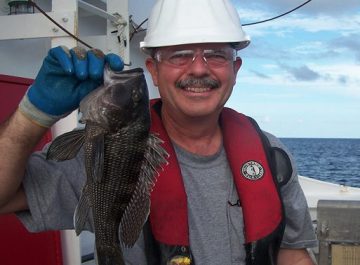 The Mid-Atlantic Fishery Management Council (Council) and the Atlantic States Marine Fisheries Commission (Commission) have approved revised specifications for the 2017 black sea bass fishing year as well as specifications for the 2018 fishing year for the Northern black sea bass stock (Cape Hatteras, North Carolina to the US-Canadian border). The revised specifications are based on the results of the 2016 benchmark stock assessment, which found the stock is not overfished and overfishing is not occurring. The approved limits are consistent with the recommendations of the Council’s Science and Statistical Committee. The Commission’s actions are final and apply to state waters (0-3 miles from shore). The Council will forward its recommendations for federal waters (3 – 200 miles from shore) to NOAA Fisheries Greater Atlantic Regional Fisheries Administrator for final approval. Read the rest here 11:23
The Mid-Atlantic Fishery Management Council (Council) and the Atlantic States Marine Fisheries Commission (Commission) have approved revised specifications for the 2017 black sea bass fishing year as well as specifications for the 2018 fishing year for the Northern black sea bass stock (Cape Hatteras, North Carolina to the US-Canadian border). The revised specifications are based on the results of the 2016 benchmark stock assessment, which found the stock is not overfished and overfishing is not occurring. The approved limits are consistent with the recommendations of the Council’s Science and Statistical Committee. The Commission’s actions are final and apply to state waters (0-3 miles from shore). The Council will forward its recommendations for federal waters (3 – 200 miles from shore) to NOAA Fisheries Greater Atlantic Regional Fisheries Administrator for final approval. Read the rest here 11:23
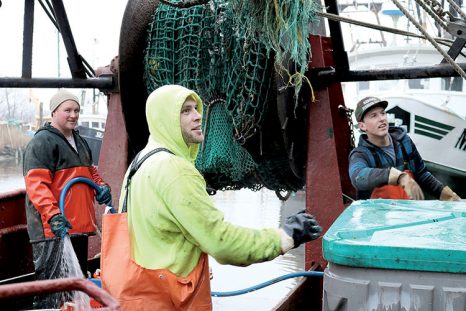
NJ Fluke Fishing Industry in Flux
After a decision made last week aimed at protecting the Atlantic Ocean’s primary cash fish, New Jersey anglers now believe their industry is in dire straits. The Atlantic States Marine Fisheries Commission (ASMFC), a federally regulated authority that oversees fishing management for the 15 states along the Atlantic Coast, has decided to increase regulations on summer flounder for 2017. “With what they’re proposing, it’s going to be the final nail in our coffin,” said Ron Santi, a head boat captain based out of Atlantic Highlands. “When looking at recreational and commercial fisheries on a whole, it seems as though for 20 to 30 years, we’ve been fishing at a higher level than the resources can sustain,” said Kirby Rootes-Murdy, a senior fishery management plan coordinator with ASMFC. Between recreational and commercial fishing, fluking generates nearly $2.5 billion for the state’s economy, according to the NJ Department of Environmental Protection. Continue reading the story here 08:00
Could N.J. defy summer flounder cuts?
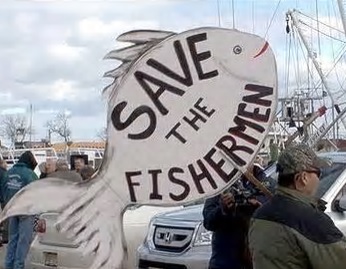 It didn’t take long after the Atlantic States Marine Fisheries Commission voted to slash summer flounder harvest quotas for the rumblings of anglers calling for New Jersey to defy the regulations to pick up. The ASMFC ordered the harvest cut by 40-percent based on science that indicates the fish is declining in abundance and survey data that reports anglers overreached their quotas last year. The science and angling surveys are at the center of the issue. Many lawmakers in New Jersey and its environmental chief have expressed concern about its accuracy because it relies on random sampling. “We understand the long-term impacts of overfishing a species. But we also know for a fact that fluke are abundant and the population is stable off New Jersey,” said Bob Martin, the Commissioner of the state’s Department of Environmental Protection. Video, Read the story here 16:25
It didn’t take long after the Atlantic States Marine Fisheries Commission voted to slash summer flounder harvest quotas for the rumblings of anglers calling for New Jersey to defy the regulations to pick up. The ASMFC ordered the harvest cut by 40-percent based on science that indicates the fish is declining in abundance and survey data that reports anglers overreached their quotas last year. The science and angling surveys are at the center of the issue. Many lawmakers in New Jersey and its environmental chief have expressed concern about its accuracy because it relies on random sampling. “We understand the long-term impacts of overfishing a species. But we also know for a fact that fluke are abundant and the population is stable off New Jersey,” said Bob Martin, the Commissioner of the state’s Department of Environmental Protection. Video, Read the story here 16:25
Commission Cuts Summer Flounder leaving New Jersey leaders fuming
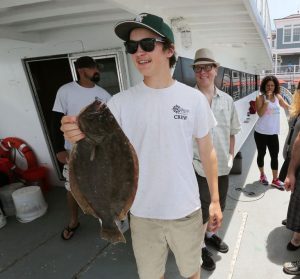 The Commission voted Thursday to reduce this year’s summer flounder catch, leaving New Jersey leaders fuming and vowing to take action. It’s a move many in the state believe could devastate the recreational fishing industry at the Jersey Shore by tightening size and bag limits on the fish.,,At its meeting in Virginia, the Atlantic States Marine Fisheries Commission chose Option 5, which implements reductions between 28 percent and 32 percent the length of the coast. All other options included in the plan would have mandated a 41 percent cut. Federal experts have argued the reductions are necessary to preserve the stock. At a public hearing last month in Galloway Township, Kirby Rootes-Murdy, a senior fishery management plan coordinator at ASMFC, said the flounder stock is in “an overfishing situation.” Read the story here 21:00
The Commission voted Thursday to reduce this year’s summer flounder catch, leaving New Jersey leaders fuming and vowing to take action. It’s a move many in the state believe could devastate the recreational fishing industry at the Jersey Shore by tightening size and bag limits on the fish.,,At its meeting in Virginia, the Atlantic States Marine Fisheries Commission chose Option 5, which implements reductions between 28 percent and 32 percent the length of the coast. All other options included in the plan would have mandated a 41 percent cut. Federal experts have argued the reductions are necessary to preserve the stock. At a public hearing last month in Galloway Township, Kirby Rootes-Murdy, a senior fishery management plan coordinator at ASMFC, said the flounder stock is in “an overfishing situation.” Read the story here 21:00
Pallone Opposes Cuts to Summer Flounder Quotas at Atlantic States Marine Fisheries Commission meeting
 Today, at the Atlantic States Marine Fisheries Commission, a spokesperson for Congressman Frank Pallone, Jr. (NJ-06) provided a statement arguing that proposed reductions for Summer Flounder quotas would harm many coastal communities including those along the Jersey Shore that rely on the recreational and commercial fishing industries. The Commission, despite opposition by New Jersey representatives, elected to finalize regulations that will result in a 34% cut in summer flounder quotas for the state. The bag limit will decrease to 3 fish, and the minimum size will increase one inch to 19 inches on the New Jersey coast and 18 inches in Delaware Bay. The recreational and commercial limits would both be reduced by approximately 30% in 2017 and 16% in 2018. Read the press release here 18:57
Today, at the Atlantic States Marine Fisheries Commission, a spokesperson for Congressman Frank Pallone, Jr. (NJ-06) provided a statement arguing that proposed reductions for Summer Flounder quotas would harm many coastal communities including those along the Jersey Shore that rely on the recreational and commercial fishing industries. The Commission, despite opposition by New Jersey representatives, elected to finalize regulations that will result in a 34% cut in summer flounder quotas for the state. The bag limit will decrease to 3 fish, and the minimum size will increase one inch to 19 inches on the New Jersey coast and 18 inches in Delaware Bay. The recreational and commercial limits would both be reduced by approximately 30% in 2017 and 16% in 2018. Read the press release here 18:57
Southern New England Lobstermen question need for restrictions to help species
Some lobster fishermen expressed skepticism Tuesday about a plan to try to revive the dwindling southern New England lobster stock through 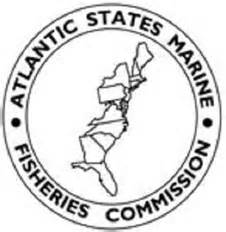 . Lobster fishing in the U.S. is experiencing a boom that has lasted several years, and prices have also been high. But the population of the species has diminished in the waters off southern Massachusetts, Rhode Island, Connecticut and Long Island, New York, where it was once plentiful. The Atlantic States Marine Fisheries Commission is considering a host of options to try to rejuvenate the region’s lobster stock, which scientists have said is falling victim to rising ocean temperatures. An arm of the commission voted Tuesday to send the options out for public comment. Read the story here 08:31
. Lobster fishing in the U.S. is experiencing a boom that has lasted several years, and prices have also been high. But the population of the species has diminished in the waters off southern Massachusetts, Rhode Island, Connecticut and Long Island, New York, where it was once plentiful. The Atlantic States Marine Fisheries Commission is considering a host of options to try to rejuvenate the region’s lobster stock, which scientists have said is falling victim to rising ocean temperatures. An arm of the commission voted Tuesday to send the options out for public comment. Read the story here 08:31
Controversial flounder plan could get final approval Thursday
 A proposal to drastically reduce this year’s summer flounder catch could get final approval at a federal regulatory meeting Thursday morning in Virginia. The Atlantic States Marine Fisheries Committee is scheduled consider strategies that would reduce the summer flounder harvest by up to 41 percent coast-wide and implement tighter restrictions on bag and size limits for recreational fishermen. It’s a proposal that has been met with widespread criticism in New Jersey—from recreational fishermen, both U.S. Senators, multiple other politicians and even the head of the state Department of Environmental Protection. In August, the ASMFC and the Mid-Atlantic Fishery Management Council set the summer flounder harvest limit at an all-time low in response to the most recent stock assessment, and, last month, the regulatory bodies approved a set of options to meet that goal. Read the rest of the story here 21:27
A proposal to drastically reduce this year’s summer flounder catch could get final approval at a federal regulatory meeting Thursday morning in Virginia. The Atlantic States Marine Fisheries Committee is scheduled consider strategies that would reduce the summer flounder harvest by up to 41 percent coast-wide and implement tighter restrictions on bag and size limits for recreational fishermen. It’s a proposal that has been met with widespread criticism in New Jersey—from recreational fishermen, both U.S. Senators, multiple other politicians and even the head of the state Department of Environmental Protection. In August, the ASMFC and the Mid-Atlantic Fishery Management Council set the summer flounder harvest limit at an all-time low in response to the most recent stock assessment, and, last month, the regulatory bodies approved a set of options to meet that goal. Read the rest of the story here 21:27
ASMFC Winter Meeting – January 30 – February 2, 2017 in Alexandria, Virginia
 Final Agenda, Click here For ease of access, all Board/Section meeting documents, with the exception of the Shad & River Herring Board materials and the submitted public comment portion of the Atlantic Menhaden Board materials, have been combined into two documents – Main Meeting Materials 1 and Main Meeting Materials 2. Main Meeting Materials 1 includes all boards/sections meeting on January 31 and Main Meeting Materials 2 are materials for the remainder of the week. Additionally, supplemental materials have been combined into document – Supplemental Materials. Links to individual board/committee materials can be found below. Board/Section meeting proceedings will be broadcast daily via webinar beginning at 8:00 a.m. on January 31st and continuing daily until the conclusion of the meeting (expected to be 3:00 p.m.) on Thursday February 2nd. The webinar will allow registrants to listen to board/section deliberations and view presentations and motions as they occur. Click here for access. 19:57
Final Agenda, Click here For ease of access, all Board/Section meeting documents, with the exception of the Shad & River Herring Board materials and the submitted public comment portion of the Atlantic Menhaden Board materials, have been combined into two documents – Main Meeting Materials 1 and Main Meeting Materials 2. Main Meeting Materials 1 includes all boards/sections meeting on January 31 and Main Meeting Materials 2 are materials for the remainder of the week. Additionally, supplemental materials have been combined into document – Supplemental Materials. Links to individual board/committee materials can be found below. Board/Section meeting proceedings will be broadcast daily via webinar beginning at 8:00 a.m. on January 31st and continuing daily until the conclusion of the meeting (expected to be 3:00 p.m.) on Thursday February 2nd. The webinar will allow registrants to listen to board/section deliberations and view presentations and motions as they occur. Click here for access. 19:57
R.I. quota for menhaden the focus of debate
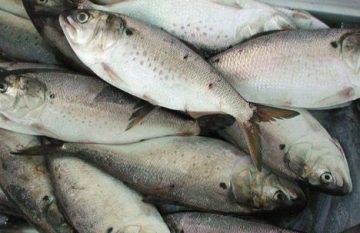 About 30 recreational and commercial fishermen, fish processors, environmental groups (like Save the Bay) and fish managers attended Monday’s public hearing on Atlantic menhaden at the URI Bay Campus held by the Atlantic States Marine Fisheries Commission. The two main issues at the hearing were the use of ecosystem-based management strategies to determine stock status and allowable catch limits, and landing time frames, which would be used to determine allocation of quota. The Atlantic menhaden plan will be the first ASMFC plan that utilizes ecosystem-based management in this fashion. Meghan Lapp of Seafreeze, Ltd., North Kingstown (the largest producer and trader of sea-frozen fish on the East Coast) and a member of the ASMFC Atlantic menhaden Advisory Panel, said “Historically, Rhode Island has landed a lot more fish than the allocation reflects.” Read the column here 16:30
About 30 recreational and commercial fishermen, fish processors, environmental groups (like Save the Bay) and fish managers attended Monday’s public hearing on Atlantic menhaden at the URI Bay Campus held by the Atlantic States Marine Fisheries Commission. The two main issues at the hearing were the use of ecosystem-based management strategies to determine stock status and allowable catch limits, and landing time frames, which would be used to determine allocation of quota. The Atlantic menhaden plan will be the first ASMFC plan that utilizes ecosystem-based management in this fashion. Meghan Lapp of Seafreeze, Ltd., North Kingstown (the largest producer and trader of sea-frozen fish on the East Coast) and a member of the ASMFC Atlantic menhaden Advisory Panel, said “Historically, Rhode Island has landed a lot more fish than the allocation reflects.” Read the column here 16:30
Menhaden are flourishing
 A recent column by Chris Dollar (“Outdoors: The more menhaden the better,” Dec. 3) cites claims from the Chesapeake Bay Foundation that the current management of menhaden in the Chesapeake Bay has left the stock running low. The column also echoes the foundation’s position that the menhaden harvest cap should be lowered. The science suggests the opposite to be the case. In 2012, based on fears of overfishing, the Atlantic States Marine Fisheries Commission implemented a menhaden quota. Soon after the quota was implemented, scientists found the concerns of overfishing were misplaced. Further research found that menhaden are prospering coastwide. In fact, the ASMFC declared conclusively that menhaden are neither “overfished nor experiencing overfishing.” Read the rest here 15:58
A recent column by Chris Dollar (“Outdoors: The more menhaden the better,” Dec. 3) cites claims from the Chesapeake Bay Foundation that the current management of menhaden in the Chesapeake Bay has left the stock running low. The column also echoes the foundation’s position that the menhaden harvest cap should be lowered. The science suggests the opposite to be the case. In 2012, based on fears of overfishing, the Atlantic States Marine Fisheries Commission implemented a menhaden quota. Soon after the quota was implemented, scientists found the concerns of overfishing were misplaced. Further research found that menhaden are prospering coastwide. In fact, the ASMFC declared conclusively that menhaden are neither “overfished nor experiencing overfishing.” Read the rest here 15:58
Big changes in the air over little menhaden? – Hearings examine ecological value, catch allocation of forage fish species
 The Atlantic States Marine Fisheries Commission, which regulates near-shore fishing from Maine to Florida — including the Chesapeake Bay — has invited public comment on several questions about future management of the menhaden fishery at hearings all along the coast. Sessions in the Bay watershed begin Monday, Dec. 5. The most important issue under consideration involves setting new “reference points” regulating the catch of menhaden that would account for their value to other fish and predators — not just their commercial importance. But the commission also is weighing whether to shake up how the total catch is distributed along the coast. Read the slanted story here Review Public information document for Amendment 3 to the Interstate Fishery Management Plan For Atlantic Menhaden here 12:11
The Atlantic States Marine Fisheries Commission, which regulates near-shore fishing from Maine to Florida — including the Chesapeake Bay — has invited public comment on several questions about future management of the menhaden fishery at hearings all along the coast. Sessions in the Bay watershed begin Monday, Dec. 5. The most important issue under consideration involves setting new “reference points” regulating the catch of menhaden that would account for their value to other fish and predators — not just their commercial importance. But the commission also is weighing whether to shake up how the total catch is distributed along the coast. Read the slanted story here Review Public information document for Amendment 3 to the Interstate Fishery Management Plan For Atlantic Menhaden here 12:11
The real reason why you’re suddenly seeing whales in N.J. and N.Y. waters
 Whales. They’ve been seemingly everywhere. Breaching just past the sandbars in Asbury Park. Swimming past groups of surfers in Rockaway Beach. Besides inspiring a chorus of oohs and aahs, the increase in sightings is adding a blubbery new wrinkle to a raging debate over a far smaller fish: the Atlantic menhaden. It’s the menhaden, also known as “bunker” — clumsy, multidinous, slow swimming virtual floating hamburgers — that those whales are chasing. But the story of why Atlantic menhaden is suddenly so plentiful is a complicated — and controversial — one, pitting environmentalists and anglers against commercial fishing operations, with both sides claiming science is on their side. Read the story here 12:33
Whales. They’ve been seemingly everywhere. Breaching just past the sandbars in Asbury Park. Swimming past groups of surfers in Rockaway Beach. Besides inspiring a chorus of oohs and aahs, the increase in sightings is adding a blubbery new wrinkle to a raging debate over a far smaller fish: the Atlantic menhaden. It’s the menhaden, also known as “bunker” — clumsy, multidinous, slow swimming virtual floating hamburgers — that those whales are chasing. But the story of why Atlantic menhaden is suddenly so plentiful is a complicated — and controversial — one, pitting environmentalists and anglers against commercial fishing operations, with both sides claiming science is on their side. Read the story here 12:33
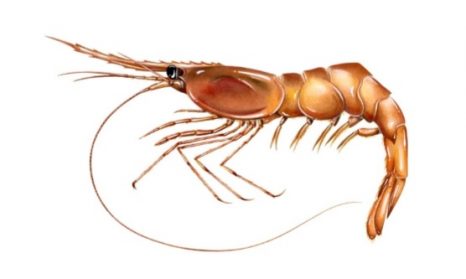
Northern shrimp season canceled for 2017
In response to the depleted condition of the northern shrimp resource, the Atlantic States Marine Fisheries Commission’s Northern Shrimp Section extended the moratorium on commercial fishing for the 2017 fishing season. The Section also approved a 53 metric ton research set aside to allow for the continued collection of biological data. The 2016 Stock Status Report for Gulf of Maine Northern Shrimp indicates abundance and biomass indices for 2012 through 2016 are the lowest on record of the 33-year time series. Recruitment indices for the 2010 through 2015 year classes are also poor and include the three smallest year classes on record. As a result, the 2012 through 2016 indices of harvestable biomass are the lowest on record. Read the rest here The 2016 Stock Status Report is available, click here 15:52
Commission likely to keep Gulf of Maine shrimp fishery closed
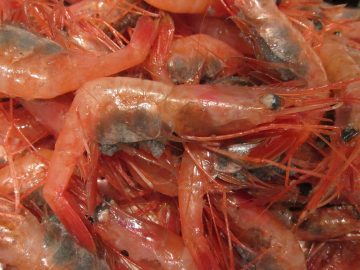 A board of the regulatory Atlantic States Marine Fisheries Commission is set to decide Thursday whether fishing will be allowed this year. A committee of scientists has advised the board it’s not a good idea, with temperatures off New England inhospitable to the shrimp. Spencer Fuller, a shrimp and lobster buyer with Cozy Harbor Seafood in Portland, said his company was once the largest processor of Maine shrimp in the country, and it has suffered. He said that he is prepared for another year of closure, but that it will send residual troubles through Maine’s seafood industry. The commission is also working on a plan for how to manage the fishery if or when reopening happens, Appelman said “If the fishery opens back up again, which we hope it does, we can’t have a free-for-all on all these shrimp,” he said. “This is how to make sure the pressure on this weak population isn’t too much for it to handle right off the bat.” Read the story here 08:05
A board of the regulatory Atlantic States Marine Fisheries Commission is set to decide Thursday whether fishing will be allowed this year. A committee of scientists has advised the board it’s not a good idea, with temperatures off New England inhospitable to the shrimp. Spencer Fuller, a shrimp and lobster buyer with Cozy Harbor Seafood in Portland, said his company was once the largest processor of Maine shrimp in the country, and it has suffered. He said that he is prepared for another year of closure, but that it will send residual troubles through Maine’s seafood industry. The commission is also working on a plan for how to manage the fishery if or when reopening happens, Appelman said “If the fishery opens back up again, which we hope it does, we can’t have a free-for-all on all these shrimp,” he said. “This is how to make sure the pressure on this weak population isn’t too much for it to handle right off the bat.” Read the story here 08:05
ASMFC scientists conclude Maine’s shrimp fishery should stay shut down
 A scientific committee says Maine’s shuttered cold water shrimp fishery should stay shut down for at least another year. The shrimp fishery has been shuttered since the end of 2013 because of low populations. Scientists say warming ocean temperatures off New England are inhospitable for the shrimp. The Atlantic States Marine Fisheries Commission says a scientific committee that studies the shrimp reports the species still faces “poor prospects for the near future.” The committee is recommending the commission extend the moratorium on fishing for the shrimp through 2017. An arm of the Atlantic States that deals with Maine shrimp will meet to make a decision about the coming fishing year on Nov. 10 in Portsmouth. link 15:53
A scientific committee says Maine’s shuttered cold water shrimp fishery should stay shut down for at least another year. The shrimp fishery has been shuttered since the end of 2013 because of low populations. Scientists say warming ocean temperatures off New England are inhospitable for the shrimp. The Atlantic States Marine Fisheries Commission says a scientific committee that studies the shrimp reports the species still faces “poor prospects for the near future.” The committee is recommending the commission extend the moratorium on fishing for the shrimp through 2017. An arm of the Atlantic States that deals with Maine shrimp will meet to make a decision about the coming fishing year on Nov. 10 in Portsmouth. link 15:53
Regulators increase menhaden quota – “Science says the stock’s in good shape,”
 Regulators voted Wednesday to increase the annual quota for menhaden in 2017, giving Maine lobstermen a welcome boost in the supply of a popular bait fish, but no relief for Maine fishermen who want a bigger share of the national menhaden harvest. The Atlantic States Marine Fisheries Commission has struggled to set its quota for the oily forage fish, also known as pogey, with members split between wanting to maintain the annual menhaden catch at 187,880 metric tons and those who say the stock has rebounded enough to raise the quota. On Wednesday, as the commission gathered for its annual meeting in Bar Harbor, the menhaden board voted 16-2 to increase the annual quota by 6.5 percent, to 200,000 metric tons, with Pennsylvania and the U.S. Fish and Wildlife Service holding out for keeping the quota unchanged. “Science says the stock’s in good shape,” said Bill Adler of the Massachusetts Lobstermen’s Association. “I find it difficult that we can deal with overfishing, we can do a good job of cutting things down, but then we have success and we don’t know what to do with it.” Read the rest here 08:07
Regulators voted Wednesday to increase the annual quota for menhaden in 2017, giving Maine lobstermen a welcome boost in the supply of a popular bait fish, but no relief for Maine fishermen who want a bigger share of the national menhaden harvest. The Atlantic States Marine Fisheries Commission has struggled to set its quota for the oily forage fish, also known as pogey, with members split between wanting to maintain the annual menhaden catch at 187,880 metric tons and those who say the stock has rebounded enough to raise the quota. On Wednesday, as the commission gathered for its annual meeting in Bar Harbor, the menhaden board voted 16-2 to increase the annual quota by 6.5 percent, to 200,000 metric tons, with Pennsylvania and the U.S. Fish and Wildlife Service holding out for keeping the quota unchanged. “Science says the stock’s in good shape,” said Bill Adler of the Massachusetts Lobstermen’s Association. “I find it difficult that we can deal with overfishing, we can do a good job of cutting things down, but then we have success and we don’t know what to do with it.” Read the rest here 08:07
KAELIN: Fisheries commission should increase menhaden quota
 When Thanksgiving rolls around this year, the Atlantic States Marine Fisheries Commission may give New Jersey’s fishermen something to be thankful for. At its meeting Wednesday, the ASMFC will be voting on whether to increase the number of menhaden fishermen can catch each year. By voting in favor of a quota increase, which is strongly supported by the science New Jersey’s commission representatives can improve local economies and bolster the bottom line of hard-working fishermen during the summer and fall seasons while maintaining a balanced ocean ecosystem. After the release of a periodic stock assessment in 2012, the ASMFC incorrectly concluded the stock was threatened. The commission followed that assessment with a significant cut in the amount of menhaden New Jersey fishermen were allowed to catch — a cut of more than 50 percent that remains in effect today, much to the detriment of New Jersey fishing businesses. Read the story here 19:57
When Thanksgiving rolls around this year, the Atlantic States Marine Fisheries Commission may give New Jersey’s fishermen something to be thankful for. At its meeting Wednesday, the ASMFC will be voting on whether to increase the number of menhaden fishermen can catch each year. By voting in favor of a quota increase, which is strongly supported by the science New Jersey’s commission representatives can improve local economies and bolster the bottom line of hard-working fishermen during the summer and fall seasons while maintaining a balanced ocean ecosystem. After the release of a periodic stock assessment in 2012, the ASMFC incorrectly concluded the stock was threatened. The commission followed that assessment with a significant cut in the amount of menhaden New Jersey fishermen were allowed to catch — a cut of more than 50 percent that remains in effect today, much to the detriment of New Jersey fishing businesses. Read the story here 19:57
Atlantic States Marine Fisheries Commission meeting at Bar Harbor, Maine October 24th-27th – Listen Live
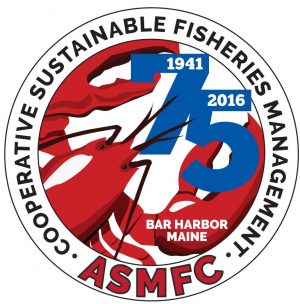 The Atlantic States Marine Fisheries Commission will meet in at the Harborside Hotel 55 West Street Bar Harbor, Maine. The agenda is subject to change. The agenda reflects the current estimate of time required for scheduled Board meetings. The Commission may adjust this agenda in accordance with the actual duration of Board meetings. Interested parties should anticipate Boards starting earlier or later than indicated herein. Click here for details, Click here for webinar 12:10
The Atlantic States Marine Fisheries Commission will meet in at the Harborside Hotel 55 West Street Bar Harbor, Maine. The agenda is subject to change. The agenda reflects the current estimate of time required for scheduled Board meetings. The Commission may adjust this agenda in accordance with the actual duration of Board meetings. Interested parties should anticipate Boards starting earlier or later than indicated herein. Click here for details, Click here for webinar 12:10
New York State Extends Commercial Black Sea Bass Season to October 13th
 Governor Andrew M. Cuomo announced that the state has extended the commercial black sea bass fishing season to October 13. Originally scheduled to close on September 17, the recent tropical storm contributed to a lower rate of black sea bass landings, making New York’s waters prime for an extended harvest season. After review of the most recent landings data, Department of Environmental Conservation and Division of Marine Resources staff determined that the commercial season could be extended. The current trip limit of 50 lbs. per day remains in effect. For certain commercially harvested species like black sea bass, annual commercial quota allocations are provided by the National Marine Fisheries Service and the Atlantic States Marine Fisheries Commission. Fishery management tools such as fishing trip limits and quota management plans have been implemented for quota managed species. The Department of Environmental Conservation continues to work closely with commercial fishermen to expand black sea bass harvest opportunities, and also has called for a revised, more equitable federal management strategy to improve the fishery experience. Link 19:06
Governor Andrew M. Cuomo announced that the state has extended the commercial black sea bass fishing season to October 13. Originally scheduled to close on September 17, the recent tropical storm contributed to a lower rate of black sea bass landings, making New York’s waters prime for an extended harvest season. After review of the most recent landings data, Department of Environmental Conservation and Division of Marine Resources staff determined that the commercial season could be extended. The current trip limit of 50 lbs. per day remains in effect. For certain commercially harvested species like black sea bass, annual commercial quota allocations are provided by the National Marine Fisheries Service and the Atlantic States Marine Fisheries Commission. Fishery management tools such as fishing trip limits and quota management plans have been implemented for quota managed species. The Department of Environmental Conservation continues to work closely with commercial fishermen to expand black sea bass harvest opportunities, and also has called for a revised, more equitable federal management strategy to improve the fishery experience. Link 19:06
Bait Relief! Maine Pogy fishery reopens with strict new rules
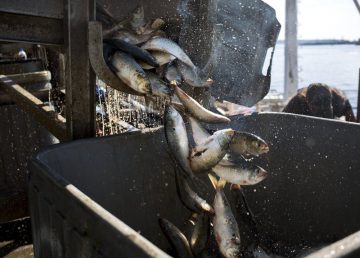 Maine made bait fishermen and lobstermen happy Monday when it reopened its pogy fishery after concluding there is still enough menhaden left in the Gulf of Maine to keep the population healthy. Those who hunt for nearshore schools of the flat, oily-fleshed silver fish – the second most popular lobster bait in Maine after herring – must follow strict new rules to prevent unusual damage or imminent depletion of the Atlantic menhaden. If they limit their fishing days to three and their catch to no more than 120,000 pounds a week, Maine fishermen can use up the remaining 2.3 million-pound quota allotted to Maine, Rhode Island and New York during a so-called “episodic” fishing event, when pogies are deemed unusually plentiful in New England waters. Read the rest here 08:08
Maine made bait fishermen and lobstermen happy Monday when it reopened its pogy fishery after concluding there is still enough menhaden left in the Gulf of Maine to keep the population healthy. Those who hunt for nearshore schools of the flat, oily-fleshed silver fish – the second most popular lobster bait in Maine after herring – must follow strict new rules to prevent unusual damage or imminent depletion of the Atlantic menhaden. If they limit their fishing days to three and their catch to no more than 120,000 pounds a week, Maine fishermen can use up the remaining 2.3 million-pound quota allotted to Maine, Rhode Island and New York during a so-called “episodic” fishing event, when pogies are deemed unusually plentiful in New England waters. Read the rest here 08:08






